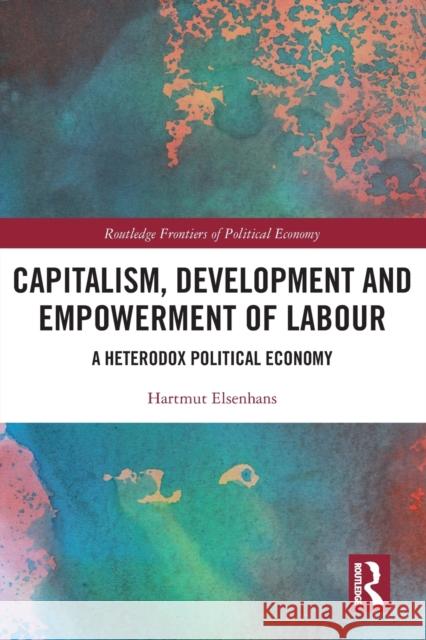Capitalism, Development and Empowerment of Labour: A Heterodox Political Economy » książka
Capitalism, Development and Empowerment of Labour: A Heterodox Political Economy
ISBN-13: 9781032022406 / Angielski
Capitalism, Development and Empowerment of Labour: A Heterodox Political Economy
ISBN-13: 9781032022406 / Angielski
(netto: 209,43 VAT: 5%)
Najniższa cena z 30 dni: 201,44
ok. 16-18 dni roboczych.
Darmowa dostawa!
The neoliberal approach presents politics and political economy as nuisances which disturb the smooth operation of self-regulating markets. But political economy is not merely an academic issue – it is a class issue. This book forcefully argues that political economy should return to a central position in the study of the social sciences.
The dominant neoliberal approach presents politics and political economy as nuisances which disturb the smooth operation of self-regulating markets. But political economy is not merely an academic issue – it is a class issue, and this book forcefully argues that political economy should return to a central position in the study of the social sciences.
Offering nothing less than a reconciliation of Marxian, Keynesian and neoclassical economics, the work opens with a discussion of the key, interconnected economic concepts which help us to understand capitalism: price, income, profit, value, growth and crisis. Prices reflect income distribution and therefore class relations, and the chapters show that the very emergence of capitalism resulted from mass empowerment of the so-called "lower orders". Profit is always available if entrepreneurs spend on net investment and create incomes for additional labour; this, in turn, requires expanding demand, and so therefore profit depends on rising mass incomes. Conversely, underdevelopment is the result of the destitution and disempowerment of the masses. In the Global South today, it is clear that enormous riches go hand in hand with widespread misery and poverty because the market does not transform wealth into the kind of investment that might benefit all. This book argues that the new wealth triggered by productivity increases has enabled the rich to liberate themselves from the capitalist constraints of competition and waste their new wealth in the form of rents. The main threat today is, in fact, the globalisation of rent. The text makes a point for a progressive counter strategy: capitalist structures that empower labour need to be transferred to the Global South. This requires political and economic efforts towards empowering labour in the Global South.
This book demonstrates the analytical power of political economy for all social scientists and will be invaluable reading for economists, political scientists and sociologists in particular.











